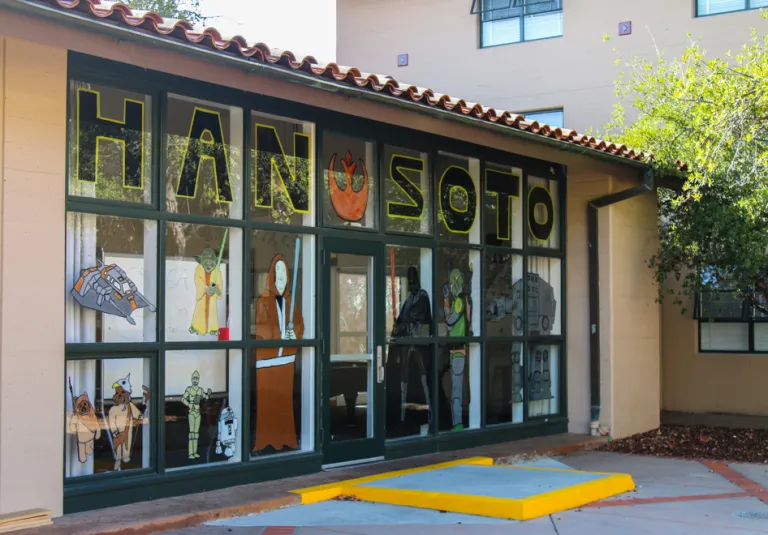Following Stanford’s decision to move spring quarter online, dorm residents were dispersed across the world, prompting frosh and dorm staff to get creative to maintain friendships and connection.
Burbank Resident Assistant (RA) Nicko Rucker ’21 said his dorm is continuing house meetings and that individual staffers are hosting their own events over Zoom.
“I personally have hosted an event on Zoom that I used to host back at Stanford called ‘Sip and Simp Sundays,’” he said. “We come together on Sunday nights, grab a blanket and a cup of hot tea and we discuss some of the challenges we are facing as a way to bond with each other.”
Donner Peer Health Educator (PHE) Jared Hysinger ’21 said his dorm is trying to maintain community online as well.
“Now that it’s clear this will be the norm for a while, we’re trying ‘Netflix discussion clubs,’ similar to the book clubs that our amazing Resident Fellow (RF) Linda hosts,” he said. “We’re starting with ‘Tiger King’ and working our way through whichever Netflix show goes viral next.”
Hysinger added that Donner staff are working to engage with residents digitally.
“When they text us, or snap us, or send Tik-Toks, we keep up, we respond, we keep engaging with them,” Hysinger said. “We follow up on issues we know they were talking about last quarter, whether that be something they’re struggling with or their latest ‘clownery.’ This community continues to exist no matter what.”
Students staying on campus have also taken time to maintain community wherever possible. Junipero resident Oumnia Chellah ’23, who elected to stay on campus for spring quarter, said her dorm is still hosting events while following social-distancing protocols.
“People in my dorm usually gather to watch a movie or hang out in the lounge, following the six-feet social distancing recommendations,” Chellah said. “I don’t know how often we will be able to do it throughout the quarter, but I’m grateful that there are still people in the dorm I can hang out with.”
‘Engagement has been lost’
The transition to building and maintaining community from afar has not been without its hiccups, however.
Rucker said that RAs have been doing their best to maintain the community ever since they left campus and assumed duties online, despite challenges.
“Staff is scattered and dealing with their own struggles, and it is hard to provide stability to residents when our own situations can be unstable,” he said. “I do believe that, as we are finishing our fourth week away from campus, we are settling into more predictable situations and can return to being better pillars of our community.”
Norcliffe resident Dyllen Nellis ’23 said that a lack of motive is preventing her dorm from maintaining the same levels of community it had previously.
“The overall motivation of staying connected has significantly decreased,” Nellis said. “With our online dorm events, about only five of the 50 freshmen show up. Engagement has been lost even with the efforts to keep the community alive.”
Attempting to stay in contact with friends over FaceTime or Zoom, Nellis said, is “not the same.” While she is still excited for activities her staff is planning, like the online edition of “screw your roo,” she is disappointed her dorm would not be able to partake in typical spring quarter events.
Rucker said that to combat potential disengagement, he and other staff have learned to value each interaction with residents more.
“The most rewarding part of this experience is knowing that we have a strong community without the crutch of close proximity,” Rucker said. “We have to be intentional about our interactions, we know and feel the boundaries that have been set up between us, and that makes us really cherish the times we do spend together. I don’t think many people are taking it for granted.”
Hysinger also found a silver lining in the transition to an online community.
“We didn’t take this job because we enjoy telling residents to tone it down at 1 a.m. or keep alcohol out of common spaces, although we do it because it’s our responsibility,” Hysinger said. “But now, we don’t need to do that. We get to do all the best parts of the job, like supporting them, planning fun things, tempering their fears and concerns and just being their friend. That’s the best part of the job.”
Contact Anastasia Malenko at malenk0 ‘at’ stanford.edu.
